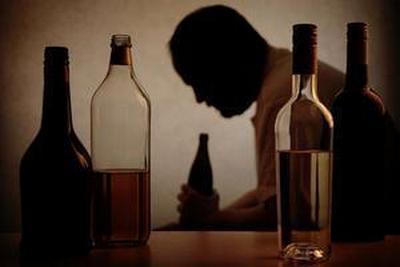Could Giving Up Anonymity in Alcoholism Improve Marital Outcomes?
 According to statistics from the National Institute on Alcohol Abuse and Alcoholism, at least 24.6 percent of people aged 18 and older reported an alcohol use disorder in 2013. It is the third leading preventable cause of death in the United States, and it is one of the least discussed, but among the most problematic issues in marriages today. Some are trying to change the secrecy and stigma surrounding this monumental problem in hopes of changing the lives and futures of others.
According to statistics from the National Institute on Alcohol Abuse and Alcoholism, at least 24.6 percent of people aged 18 and older reported an alcohol use disorder in 2013. It is the third leading preventable cause of death in the United States, and it is one of the least discussed, but among the most problematic issues in marriages today. Some are trying to change the secrecy and stigma surrounding this monumental problem in hopes of changing the lives and futures of others.
Alcoholics No Longer Anonymous?
Alcoholism was first labeled as a disease by the American Medical Association in 1956. Unfortunately, very little has changed in the way society views alcoholism. Most still consider it a personal weakness or unwillingness to “just quit.” The truth is that alcoholism, like other substance use disorders, is a medical condition that can be overcome with proper treatment and determination on the part of the sufferer.
Because of the stigma, most alcoholics feel they have been stuck in the dark, left to battle their addictions alone. They feel ashamed and, even when they want help, they are afraid to step forward. Even more concerning is that they continue to feel as if they must hide, even when they are in long-term recovery from their addiction.
When looking at the bigger picture, the problem is that society has painted a hopeless canvas for those still struggling, and it has paved a seemingly inevitable path to divorce for those that are married to the alcoholic. But the truth looks very different. While, yes, there are alcoholics that never get better, there are many that do. And, while yes, there are marriages that end over alcoholism, there are many others that do not.
In fact, one study found that marriage may actually help reduce the alcohol consumption of heavy drinkers. The researchers called it a “maturing out” process, one in which the responsibilities of their new role as spouse conflicted so strongly with their behavioral patterns that one or the other had to change. Because alcoholics also often suffer from co-dependency, they may be more apt to cut back their drinking than give up their marriage.
It is this picture that those wishing to break away from anonymity hope to paint--one that depicts the real face of alcoholics and their loved ones—a picture of suffering, of pain, but also of hope.
Planning on Filing for Divorce?
Sometimes, the road to sobriety is just too rocky for alcoholics and those that love them. This could be due to domestic violence that occurs during alcoholic episodes, or it may simply be due to the emotional and financial strain that addiction places on a marriage. If you are married to someone with a substance use disorder and plan to file for divorce, it is imperative that you contact a skilled divorce attorney immediately.
The Naperville family law attorneys of Pesce Law Group, P.C., can help you navigate the difficult process of divorce. We provide compassionate representation for spouses of alcoholics, including those in which domestic violence may be a factor. For a consultation, contact our team at 630-352-2240 today.
Sources:
http://www.news-medical.net/news/20150804/Marriage-can-cause-dramatic-drinking-reductions-among-people-with-severe-drinking-problems.aspx
http://www.niaaa.nih.gov/alcohol-health/overview-alcohol-consumption/alcohol-facts-and-statistics
http://www.santafenewmexican.com/news/some-with-addictions-no-longer-want-to-be-anonymous/article_399bf746-81ca-5c22-b142-5c67c6262f4f.html











 630-352-2240
630-352-2240



